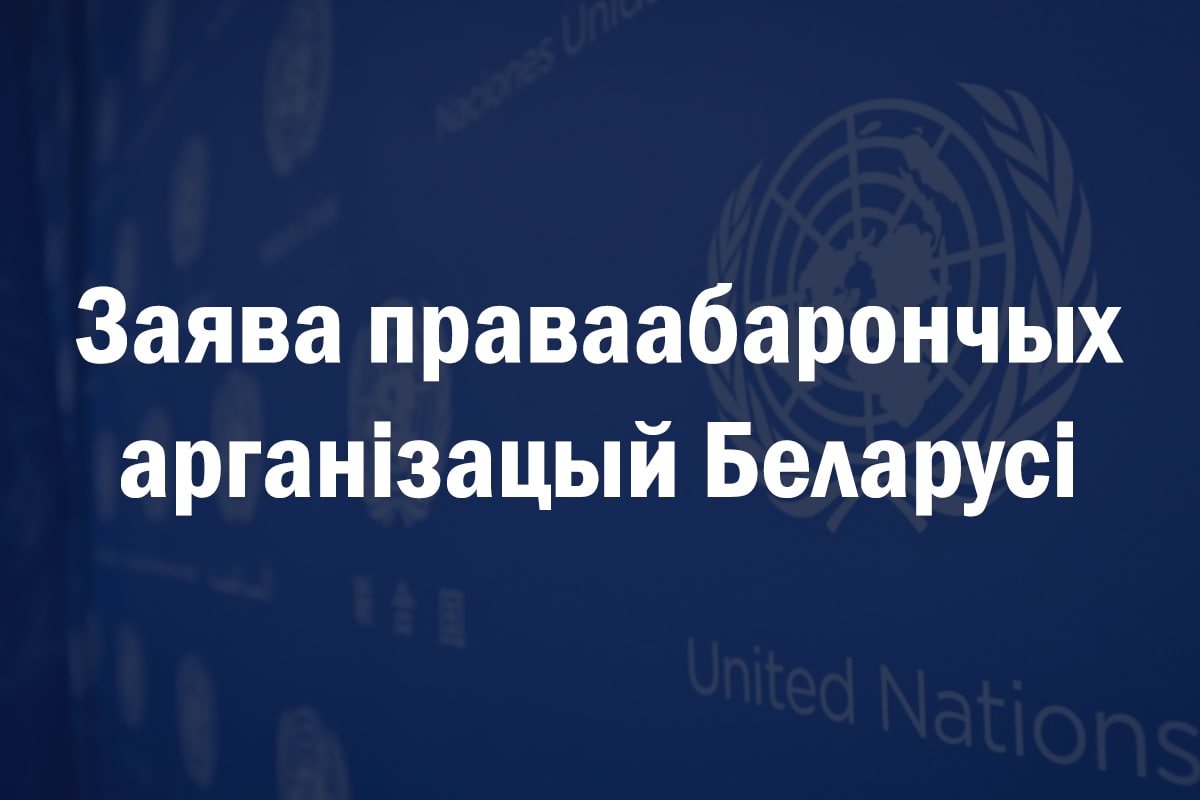
On August 17, it became known that the Council of Ministers initiated the draft “On denunciation of the Optional Protocol to the International Covenant on Civil and Political Rights by the Republic of Belarus”. The House of Representatives is currently preparing for the first reading of the bill.
The Optional Protocol to the International Covenant on Civil and Political Rights is an international treaty ratified by Belarus in 1992 that grants the right to file individual complaints about violations of civil and political rights by the Republic of Belarus to the UN Human Rights Committee.
Although the Committee is not a judicial body and does not have a mechanism for ensuring the enforcement of its decisions by States, in its General Comment No. 33 it stated that “the views issued by the Committee under the Optional Protocol exhibit some important characteristics of a judicial decision. They are arrived at in a judicial spirit, including the impartiality and independence of Committee members, the considered interpretation of the language of the Covenant, and the determinative character of the decisions.”
Accordingly, the decisions of the Committee establishing the existence or absence of violations under the International Covenant on Civil and Political Rights are of key importance both for victims of human rights violations who have applied to the Committee in the absence of effective domestic remedies and for States whose goal is to ensure and protect human rights. The very recognition by the state of an individual’s right to file a complaint against its action demonstrates the state’s recognition of the importance of individuals and their rights. It is deeply symbolic that one of the first actions of the independent new Belarus was to recognize the right of Belarusians to challenge human rights violations in an international body and acceding this universally accepted UN procedure.
The Committee has so far dealt with some 150 communications alleging violations of the International Covenant on Civil and Political Rights by the Republic of Belarus, and although the Committee’s decisions have been consistently ignored by the authorities, the State has been obliged to respond to the Committee by explaining the matter and providing information on the measures taken.
While the Constitution enshrines that “individuals, their rights, freedoms, and guarantees of their realization are the highest value and purpose of society and the state”, the current authorities narrow down the possibilities for citizens to appeal to international bodies in response to violations of their rights. Once the Optional Protocol is denounced, there will be only one treaty body to which individual communications can be addressed if the Republic of Belarus violates human rights and freedoms—the Committee on the Elimination of Discrimination against Women—but its mandate and subject matter jurisdiction are more limited.
Article 61 of the Constitution of Belarus provides for the right to appeal to international organizations to protect one’s rights and freedoms if all available domestic remedies have been exhausted. By enshrining such a norm in its Constitution, the Republic of Belarus has confirmed the importance of this right. The plans of the authorities to denounce the Optional Protocol are not in the spirit of the Constitution, as they significantly reduce the number of opportunities for individuals affected by human rights violations to use international procedures when domestic remedies are not available or are ineffective.
In addition to its legal significance, the ratification of the Protocol in 1992 had an important symbolic meaning. It was one of the symbols of the establishment of the rule of law in newly independent Belarus and a demonstration of the country’s commitment to its international human rights obligations. Ratification of the protocol was the first step towards joining the community of states for which human rights and the rule of law are important. The officials who today intend to denounce the Optional Protocol, among other things, do not have the moral right to do so. The current authorities could not protect what was done before them, but they are obliged at least not to destroy it.
Based on the above, we demand that the Belarusian authorities:
- discontinue plans to denounce the Optional Protocol to the International Covenant on Civil and Political Rights;
- ensure that citizens have access to international human rights protection mechanisms, taking steps to expand such opportunities rather than exclude them;
- comply with international human rights obligations by bringing the legislation and legal practice into conformity with them.
We also call on international organizations to publicly condemn these intentions of the Belarusian authorities, urging them to abandon denunciation of the Optional Protocol, and focus their actions on empowering Belarusian citizens to use international human rights mechanisms.
Belarusian Helsinki Committee
Legal initiative
Barys Zvozskau Belarusian Human Rights House
Lawtrend
Human Constanta
PEN Belarus
Human Rights Center Viasna
